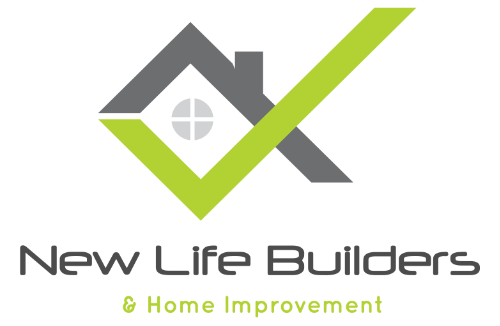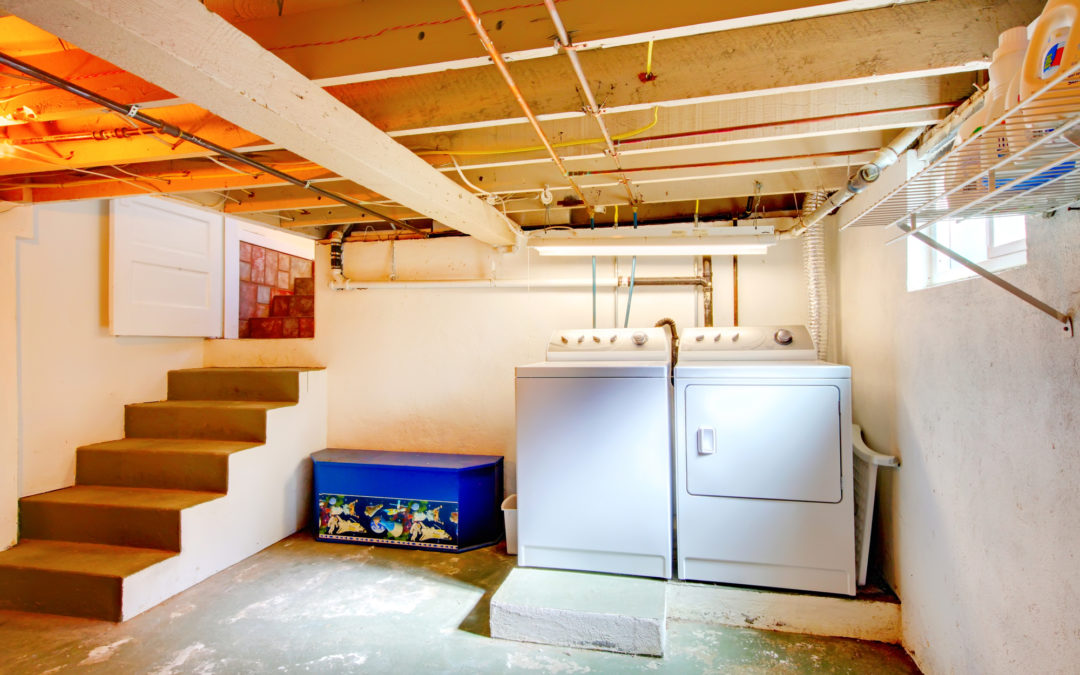There are many things to cover when finishing a basement, from what IS a finished basement to what is legally a finished bedroom in a basement and how to waterproof. So let’s get started.
What is the difference between a finished basement and a non-finished basement?
An unfinished basement is just that – no drywall, the ceiling has beams and wiring exposed, there is a concrete floor and all hookups are exposed as well. All pipes and A/V ducts are also exposed. This is usually stored for the homeowners. A finished basement has all wiring, plumbing, A/V, and concrete closed off and hidden – finishes are drywall and paint. Waterproofing and finishes are applied to the basement to look like the rest of the home. This is livable space. A finished basement will also count as square footage when selling your home, unfinished space does not. You can also ask for suggestions from a general contractor for home additions.
What should I do first before finishing my basement?
Make sure there is no moisture or mold. If there is none, make sure before you start your project that nothing you do will CAUSE moisture or mold to grow in your basement. Putting anything on your cement walls in your basement will start the moisture cycle, so remember not to paint the walls with any product whatsoever. There needs to be a barrier of air for circulation and then you can finish your basement. You may lose a little square footage, but it will be worth it when your basement is dry and mold-free.
Why finish my basement?
It dramatically increases the square footage of your home, the resale value and the usability of your living space. In the summer, it is cooler than the rest of the home and can be a good place to retreat to during the heat of the day. Also, it doesn’t necessarily need to fit in with the rest of the home, as it can be the game room, guest area or mother-in-law suite. This is found space that can be used in a way that best suits your needs.
What criteria should I look for before finishing my basement?
You need at least 7’ ceilings before thinking about finishing your basement. Any lower and it could feel very cramped by the time you finish your ceilings and walls. You also want to be able to walk comfortably after it is finished, so ceiling height can be crucial.
Can I finish just part of my basement?
This is a qualified yes. You can but you open yourself up for mold and dampness issues. It is better to have a fully unfinished basement or fully finished basement, but half actually is worse for creating moisture issues that grow mold and leaks. You have a problem with high humidity and a lot of food for the mold spores to munch on… and you get the idea.
How much does it cost to finish my basement?
That really depends on what you want to put down there. This is a highly customizable space. If you are thinking of a kitchenette and making an apartment living space, it will be more than an open game space. Or if you are thinking of a home theatre, well, you get the idea. Plumbing, electric, drywall, and finishes all will take up part of the budget, but more will be what you want. If you want a bathroom, yes, it will add to resale and you will probably get that money back, but you have to spend a little more to put it in. Then it also depends on the finishes for the bathroom. Talk to your contractor and they can give you a better ballpark.
What about comfort and safety?
If you are thinking about radon, escape routes and HVAC, you are on the right track. Your contractor can help you make sure that your comfort (Heating and Air Conditioning) work with the rest of the house. A radon detector can help keep you safe as well as some type of egress in case of fire. Depending on your home, it may be either an upgraded door or an egress window that is sized for the people in your home. This is especially important when adding a bedroom to your basement. Making sure you are safe and comfortable is of primary importance to New Life Builders.
What tips may I want to think about?
Noise control – It ain’t pretty, but it does make a big difference in the quality of the build when you add noise control tiles or insulation to the ceiling of your basement remodel. Deadening the sound from the basement makes the upper living space quieter and the perception is good quality build when you don’t hear sounds from downstairs.
Floor options – carpet and wood floors and really not your best options for basements, but tiles are terrific. Anything that absorbs moisture will add to your humidity and mold issues, so consider your cement slab before choosing flooring. An area rug is okay, but talk about your choices with someone who can help you with mold control.
Choose basement materials – your contractor can help with this. Organic materials such as wood, drywall and the like are mold food. There are special materials made for basement remodels. These will keep you warm and dry.
What about permits and inspections?
Those are local and before getting into your project, make SURE you get the proper permits and inspections done (during your remodel) so that you are legal. If you don’t do this step, there will be ugly repercussions, like high fines or the construction might not be safe. If you aren’t finished with your project and you are caught, they can stop the construction until you are up to code and have proper permits and inspections, oh yeah, plus the fines added to that. You may actually be asked to REMOVE the work already performed and redo it according to code with proper inspections and permits.
If you are selling and you didn’t get permits and inspections, buyers may lowball you because the work was done subpar. They may not want to deal with potential issues that uninspected work may bring.
Or worse… you buy a home that had no permits or inspections done and the homeowners did DIY improvements. Now you are unable to secure a loan because they may deem the home as unsafe. They may close a loan from problems that arise from uninspected improvements.
All of this equals large dollars. It is easier to do it right the first time and it will cost much less as well. In time and aggravation as well as actual dollars.
How should I use space?
This is where creativity comes into play. Make sure you add dividers on your space and a bathroom is always good. Other than that, whatever works best for your family. This area can be many things, guest space, play space, relaxation area, extra living space, guest room or suite, game room, hobby space, mother-in-law suite, income residence (depending on zoning, etc), bedrooms or just about anything else. Talk to your contractor about remodels he has done and see if you can find ideas that you want to incorporate.
Bottom Line
Finishing your basement will increase the value of your home, not just for resale, but for you to live in it now. You will increase the square footage for you to actually use instead of just having storage that you will forget about. When done well, this will add to your comfort and safety. And that is money well spent.
Check our next blog post about How Long Should Adding A Room Onto My House Take?

